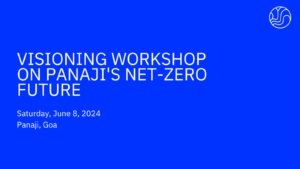The concept of crisis is pervasive, often used as a naturalizing category that subsumes specificity. The imaginary of a perpetual crisis has colonized policymaking and responses to the climate crisis worldwide, becoming foundational to knowledge production. The panel hoped to unpack and discuss: How can we critically analyze the infrastructure’s impact on climate governance? What role does “rapidity” play in shaping climate governance and societal norms? How can we address crisis-perpetuating structures for sustainability? What unforeseen effects do emergency narratives have on climate action’s efficacy?
These questions shed light on the complexities of the climate crisis and emphasize the need for a critical examination of the idea of crisis and emergency.
Madeline Kroot, PhD Scholar at Clark University, specializes in political ecology, energy geographies, and critical infrastructure studies, discussed “Decarbonization vs. Democratization in Energy Infrastructure Conflicts”. Madeline examines how normative imperatives sometimes clash, disrupting the development of low-carbon energy infrastructure.
Dr. Paul Edwards, Director, Program on Science, Technology and Society, at Stanford University, is a leading expert in climate knowledge systems, discussed the “Human Experience vs. Climate Temporalities in Attribution Science”. Dr. Edwards explores the scientific technique of ‘event attribution’ and the paradoxes within climate crisis discourse, offering unique insights into our perception of climate emergencies.
Salah Hamdoun, PhD scholar at Arizona State University, specializes in financial inclusion and its impact on social structures, presented “Risk in Order: A Historical Exploration of Finance and Science in the Emergency Imaginary”. Salah delves into how financial responses to crises have shaped collective risk perceptions, essential for market stability and climate-related risk management.
Read the takeaway blog here.




